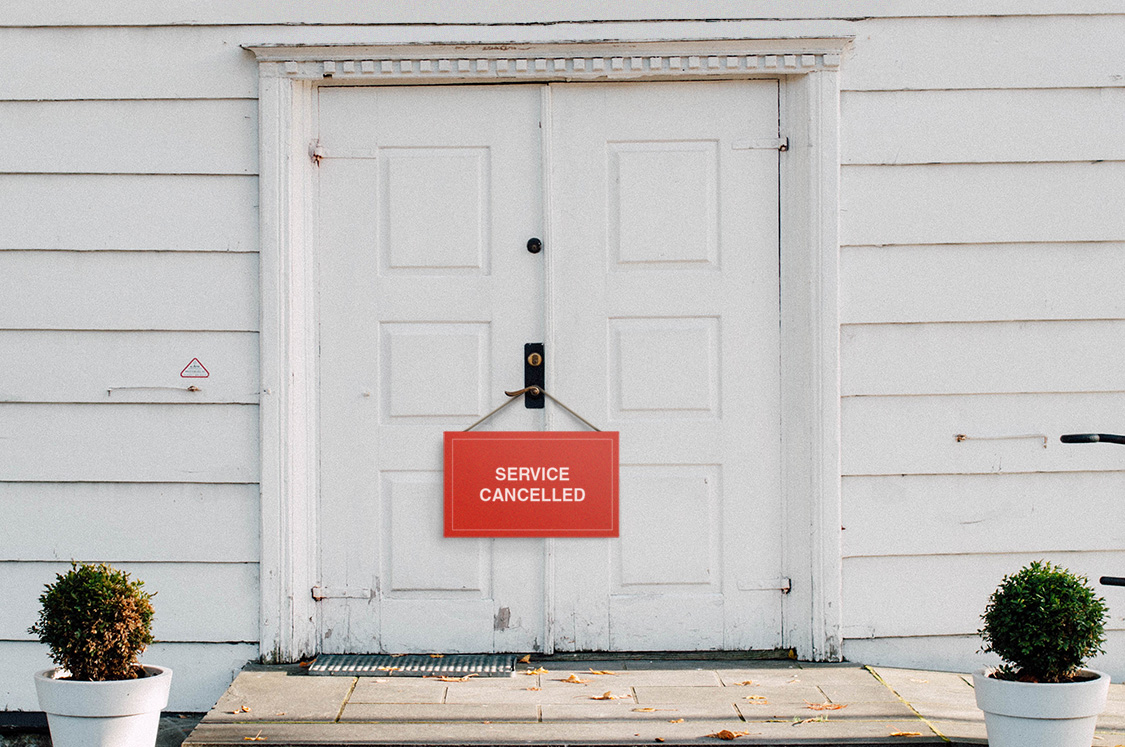
Editor’s note: The recent resignation of Pastor Pete Wilson, founding pastor of Cross Point Church in Nashville, TN, has sparked conversations about what should be expected of pastors and how to prevent burnout.
Eventually, every pastor—regardless of church size—will find congregational needs to be never-ending. There will never be a time when every care that needs attention is met. Knowing that is key to developing a plan to serve your members well—a plan that may not include you as the central person to meet the needs of each member of your congregation.
I heard a statistic that for every person sitting in your church on Sunday, there are six people connected to them who don’t have a pastor … other than you. Meaning, if tragedy strikes or there is some kind of need, since they may not have a church to turn to, you’ve become their pastor, too. If you have one hundred people in your church, that’s six hundred more people that you have the potential of ministering to.
It is imperative that you are not already running at or over capacity so that you will be ready and able to serve your members when called upon. There are things you can do to manage your pastoral care responsibilities and meet more of the needs in your congregation, but it may require you to use your time differently and enlist your congregation to serve in new ways as well.
Have a plan
The old adage is true: “If you fail to plan, you’re planning to fail.” I’ll go a step further to say, “If you don’t have a plan, you’ll end up being led by everyone else.”
Begin each day with some sense of what you want to accomplish. This goes a long way in steering the direction of your time. And it will help you get back on track when interruptions come (and they will come). One suggestion is to spend a few minutes at the end of each day creating a short list of priorities for the next day. Keep your daily plan/list as simple as possible, and prioritize the items on your list. Is this something that needs to get done that day, or can it wait? Is this something you need to take care of, or can you delegate it to someone else? Be sure to consider the amount of time each item on your list will likely take: this will keep you from setting yourself up not to finish what needs to get done.
Also consider those tasks that you keep putting off and putting off. Reevaluate if those are things that truly need doing, and if yes, is there someone else who could do it, or is it something you need to build into your plan?
By starting your day with a basic plan, one that is already created and prioritized, you are more likely to get those items done that day (and get back on track despite numerous interruptions), which frees up time for other duties.
Cancel a service (I’m serious)
In some churches this may be controversial, but I think pastors would do well to streamline programs and services—especially those that are not working.
Recently, my church made the decision to hold Sunday services only instead of the Sunday and Wednesday services that we’d done for years. It has freed us up to be more effective at what we decided to keep.
Right before the change, we cast a vision for it with those who would be impacted: the children, youth, and adults who were coming—not the whole church on Sunday morning.
If you’re preaching three times a week—Sunday mornings, Sunday nights, and Wednesday nights—that’s taking a significant portion of your week. Or maybe you preach more than one service on a Sunday morning. If streamlining services isn’t an option, consider raising up young leaders who can share a six-week Bible study on a Sunday night or Wednesday night. Give members an opportunity to serve one another.
Delegate
Unfortunately, churches have become notorious for having a lot of needless meetings and programs. At many churches the pastor is expected to be at everything, but he doesn’t need to be at everything. Simply asking, “Is it necessary that I be there? Or can you take this and run with it?” will go a long way toward clarifying expectations.
Some pastors may feel uncomfortable with the idea of delegating. They think, “I’m the pastor. This is what I’m called to do.” I had to come to terms with the reality that I can minister to only six, maybe eight, people in a day. I began to think, What if I invested that same time into six young men who will then go out and care for others as well? We have a great model for that in the Bible. It’s exactly what Jesus did. The bulk of His teaching was spent on His disciples. He taught twelve men and then sent them out to teach and serve others.
“I can do it all” is a dangerous line of thought. If you believe you have to do everything because things simply won’t happen without you, you’ve elevated yourself even above what Christ was able to do, or was willing to do. God has given us a system of dependence on the body of Christ instead of just one person. Moses ministered to more people than any of us ever will, and he needed to appoint leaders to help him.
I’ve found there are often people who are better qualified than I am to serve certain of the needs within my congregation. For instance, last week there was a woman who wanted to come in and spend some time praying with me about an issue. I met with her for fifteen minutes and I prayed with her, but I had a senior woman waiting to pray with her extensively. They ended up praying together for a couple of hours. With the reality of my ministry responsibilities, I would’ve never been able to spend that kind of time with her.
Make sure everyone is cared for
The role and responsibilities of a pastor are far-reaching and continual. Pastors who have the mind-set “I don’t care for everyone as much as I make sure everyone is cared for” show an understanding of their own human limitations and how to manage their pastoral care responsibilities well.
As pastors we have to make a shift from thinking that we must be the ones who care for every need of every member in our congregations. Not only is it impossible, but you will wear yourself thin trying and end up being ineffective in other areas as well.
There are people sitting in your congregation who can help. They may not have the same seminary or professional experience as you, but with guidance they can become well equipped to serve alongside you, while freeing you up to make the most of each ministry opportunity.
As you consider new ways to manage your care responsibilities, these articles will help: 3 ways to maintain sanity in ministry by Dr. Jeff Forrey and A little-known way to free up more time for ministry by Sam Hodges.

